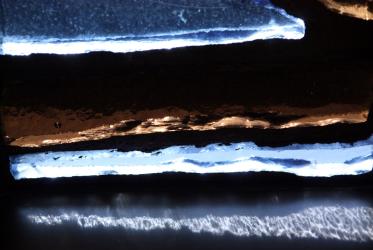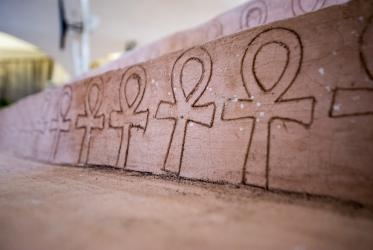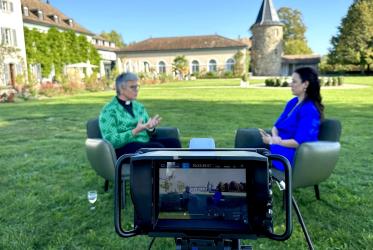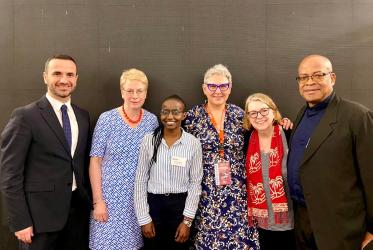Work for the unity of the church is inseparable from work for the unity of the human community and the whole of creation, according to the director of the Faith and Order Commission of the World Council of Churches (WCC).
“The unity of the church is at the heart of what it means to be ecumenical,” said Rev. Dr Odair Pedroso Mateus in a presentation at a plenary session of the WCC’s Central Committee, which is meeting in Geneva until 21 June. “But the concern for the unity of humanity, the concern for overcoming and breaking down the walls of division, is inseparable from this same understanding.”
The WCC is this year celebrating the 70th anniversary of its founding in 1948, and today brings together 350 Protestant, Orthodox, Anglican and other churches representing more than 550 million Christians in more than 120 countries.
In his presentation on 15 June, Mateus reviewed WCC statements over the past seven decades on work for the “visible unity” of the church.
One of the key statements was that of the WCC’s assembly in New Delhi in 1961, he noted.
This described unity as God’s gift through the Holy Spirit, said Mateus, a Brazilian theologian. “The ecumenical movement does not create unity; the ecumenical movement is engaged in making manifest the gift of unity,” he noted.
The New Delhi statement went on to describe the elements for the visible unity of the church as agreement on preaching the gospel, apostolic faith, sacramental life, ministry, mission and service. This continues to serve as basis of the work of the WCC “to help the churches call each other to visible unity in one eucharistic fellowship,” Mateus said.
Another key statement, he noted, was that of the WCC’s assembly in Uppsala in 1968, which referred to the church as speaking of itself as the sign of the “coming unity” of humankind. This entailed, according to the statement, working against exclusiveness of race and class, and fighting against the economic, political and social degradation and exploitation of human beings.
Most recently, in the same spirit, the 2013 assembly of the WCC in Busan, South Korea, stated that the “unity of the church, the unity of the human community and the unity of the whole creation are interconnected,” said Mateus.
“In our age,” he said, “it is capital that this vision be not only kept in mind but that it remains effective in our programmatic work.”
During the plenary, Dr Theodora Issa of the Syrian Orthodox Patriarchate of Antioch and All the East spoke of the work of her church in promoting Christian unity. This included a common declaration with the Roman Catholic Church signed in 1984 by Pope John Paul II and Patriarch Ignatius Zakka I Iwas.
In other comments, Bishop Arnold Temple of the Methodist Church in Sierra Leone spoke of the need to support ecumenism at the “grassroots” level.







